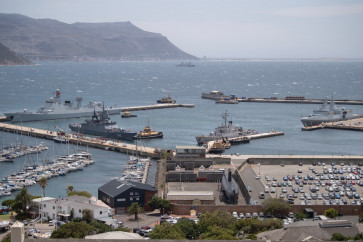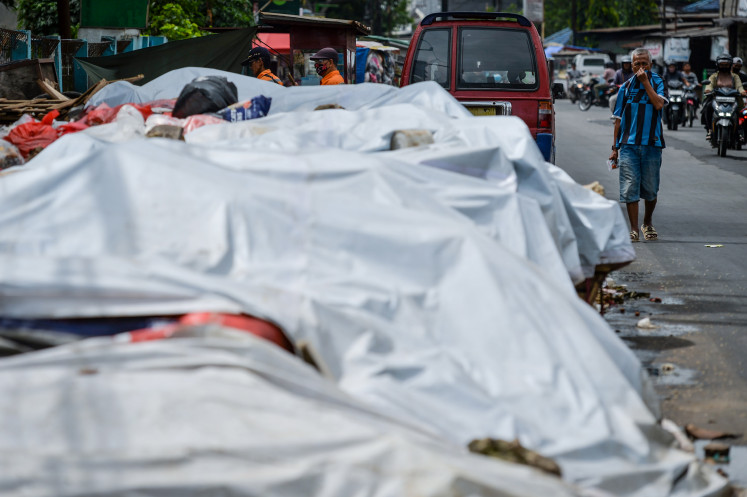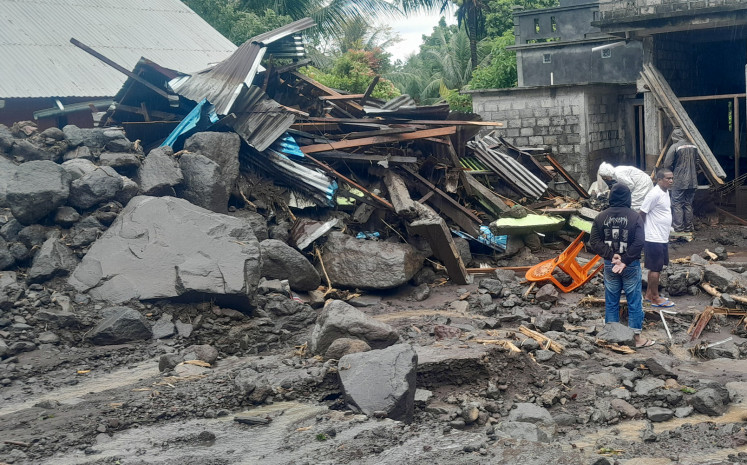Popular Reads
Top Results
Can't find what you're looking for?
View all search resultsPopular Reads
Top Results
Can't find what you're looking for?
View all search resultsObserving Ramadhan in an American city
It is the same celestial body of hydrogen and helium gas some 150 million kilometers away that illuminates both Indonesia and the US
Change text size
Gift Premium Articles
to Anyone
I
t is the same celestial body of hydrogen and helium gas some 150 million kilometers away that illuminates both Indonesia and the US. It is the same five pillars that Muslims in Indonesia and the US follow.
But because of their geographic locations, sunlight strikes Indonesia with a greater intensity than it does the US. And because of their environments, the Ramadhan experiences of Muslims in Indonesia and the US are quite different.
“I was used to going door-to-door, greeting neighbors and spending time with family,” Marthunis recalled of how he celebrated the post-fasting month holiday known as Lebaran back home in Banda Aceh.
Yet when he moved to downtown Atlanta, Georgia, he was in for some surprises.
There were no conveniently located prayer rooms, women in headscarves and calls to prayer.
In the US, only a small fraction of the population is Muslim (the US census does not collect data based on religion, so a precise number is not known). A drive through the suburbs of Atlanta takes one past churches, pawn shops and fast food restaurants — which have as many halal choices as they have extra-terrestrial visitors, which is to
say, none.
“If you look around, you wouldn’t know that it was Ramadhan,” Arif, who grew up in Surabaya, said.
The largest advertisement for Ramadhan is probably the one scribbled on a cardboard sign advertising a discount on Turkish dates.
Despite that, both Marthunis and Arif find that Americans are welcoming, understanding and even curious about Ramadhan.
“Once we explained why we were abstaining from food and drink,” Arif said, “people were immediately respectful.”
Awareness of Ramadhan is increasing, especially in cities like Atlanta, which have a large population of Muslims from Pakistan, Saudi Arabia, Ethiopia, Somalia and Bangladesh.
“I remember coming home from the mosque one night, and an older gentleman greeted us from his garage with a warm, ‘Happy Ramadhan’!” said Marthinus.
He and Arif are just two of the hundreds who choose to break their fast outside of the Al-Farooq Mosque in Atlanta. The Al-Farooq Mosque reflects the diversity of Muslims in the US.
It wouldn’t be surprising to see women in shimmering green shalwar kameez from Pakistan conversing with women in bright embroidered dresses from Ethiopia.
Nor would anyone think twice about the diverse outfits of the men — varying from baggy jeans and pressed slacks to the flowing white thobes of Saudi Arabia. This blending of cultures is an intrinsic aspect of life for Muslims in the US.
Catering to these communities are a range of restaurants and butchers offering halal options.
“But outside of Atlanta, I’m often a vegetarian or pescatarian,” Marthunis laughed, reflecting on his meals of vegetables and fish in cities without other halal options.
Since many of these Muslims grew up in Muslim countries, one wonders what effect being a minority in the US has on them — where veils and traditional garb can attract unwanted attention, and where media reports rarely highlight peaceful Muslims.
As these Muslims in Atlanta break their fast with pink drinks of sweet Rooh Afza mixed with cold milk, do they long for the celebratory spirit and festivities that sweep through Muslim countries?
Do they miss eating meat without needing to inquire if it is halal? Or do these inconveniences pale in comparison to the financial opportunities and personal freedoms they now experience? These are the questions Muslims in the US must face — on their own.










